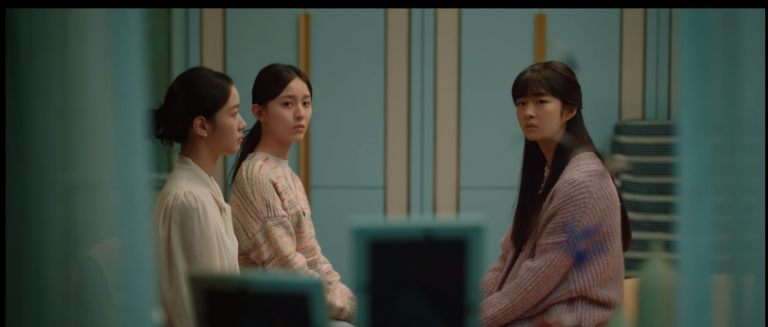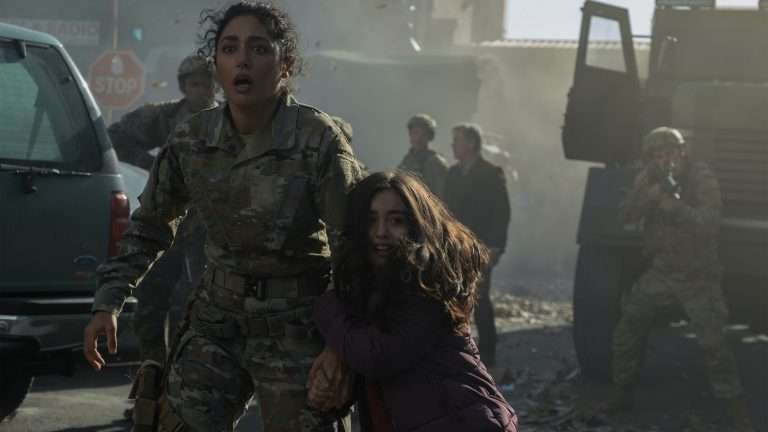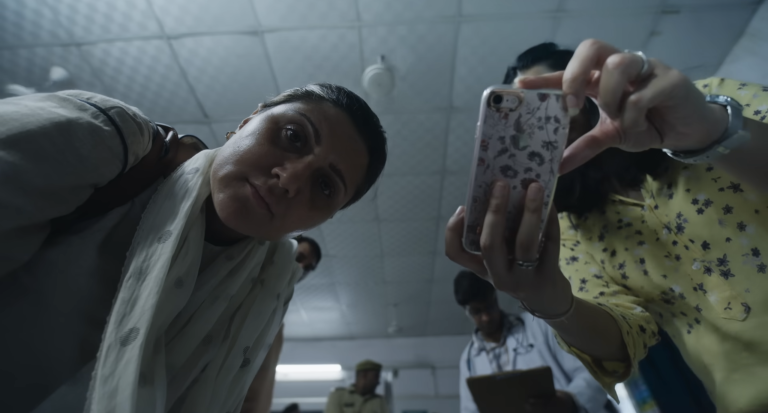More often than not, families fall victim to their own hypocrisies and go above and beyond to paint a happy picture despite the intensity of their grief and fallibility for the world to see that, on the surface, they really are a happy lot. There seems to be a sense of superiority attached to the notion of happy families, as though struggling less is a sign of greater unity, and the said greater unity is a symbol of superior individuals. With smiles painted on their faces and broken hearts, Sitara’s family came together to celebrate the union of her with her on-again-off-again lover, Arjun.
Sobhita Dhulipala, as the lead, Sitara, shines through the elements of individualistic complexities that her character offers the audience. She is vehemently supported by her co-actor, Rajeev Siddhartha, as Arjun, who ensures the realistic portrayal of the modern woman. As the representation of the contemporary, careeristic woman, Sitara is shown to have a tendency to shun the chains of a romantic relationship that typically weighs a woman down. As a result, she often breaks off her relationship with her partner, Arjun, who appears to have been more invested in the relationship than Sitara.
One might wonder why that was, considering Arjun, too, has an illustrious career as a chef of an international stature ahead of him. And this is one of the beauties of this film. In romantic dramas, we rarely find representations of a man being more domestically inclined than a woman. The modern woman, as represented by Sitara’s character, can be seen as single-mindedly committed to her career and does not bow down to the demands of being married and nurturing a family at a socially acceptable age.
Sitara brings with her a sense of liberation, which is possible only due to the unconditional attachment her partner holds towards her. Arjun does not hold her back, adds no undue pressure of a traditional commitment, and despite believing in the institution of marriage and wanting children, he adapts to Sitara’s needs and wants. The film celebrates the character of Arjun, who could be seen as the ideal modern man.
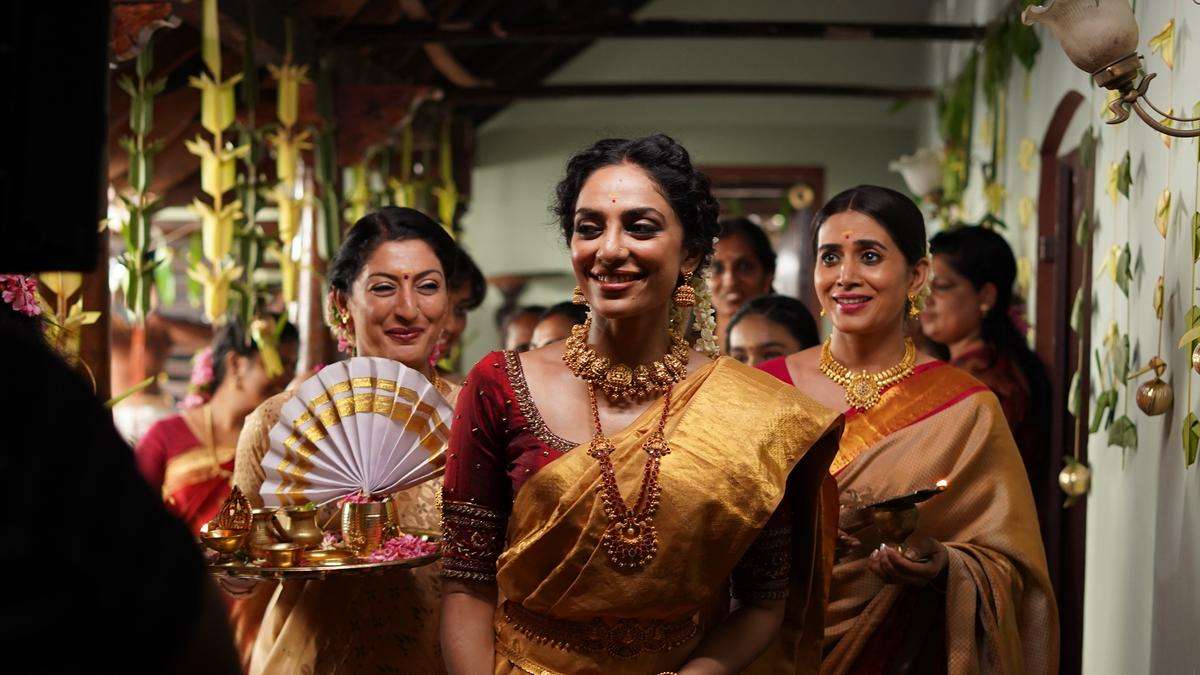
While adhering to the common elements of a classic Bollywood romantic drama, the film takes a sharp turn within 20 minutes into the film. “Love, Sitara” is well-written, thoughtfully directed, and wonderfully executed. This film deserves to be highlighted among works that display great writing prowess and demonstrate how a good writer can make a massive difference to a seemingly low-budgeted project.
Written by Sonia Bahl alongside Abbas Dalal and Hussain Dalal, the film is a prime example of how a straightforward, simplistic storyline can be portrayed with extreme sensitivity and could consist of intricate details that enrich the storyline in a manner that raises the momentum of the audience’s heartbeat. In other words, this film is an excellent example of masterful storytelling and equally skilled pictorial depiction. This film is often characterized as a family drama, but I differ from that opinion.
More than a quintessential family drama, “Love, Sitara” is a story about the silent pains a woman must endure to save her family. Every female character in the film brings with her a different narrative and lifestyle that adheres to the idea that women are highly progressive in their own rights despite belonging to varied generations. The reduced discrimination between a man and a woman, as can be seen in the film, makes it a feminist venture.
For example, Sitara’s father is shown to have cheated on her mother with her still unmarried middle-aged aunt, Sonali Kulkarni, who is shown to be an enigma in herself. Despite her age, Hema (referred to as Hema Chechi in the film) is a highly fashionable, liberated lady at a comparatively later stage of her life who doesn’t shy away from pursuing her love interest.
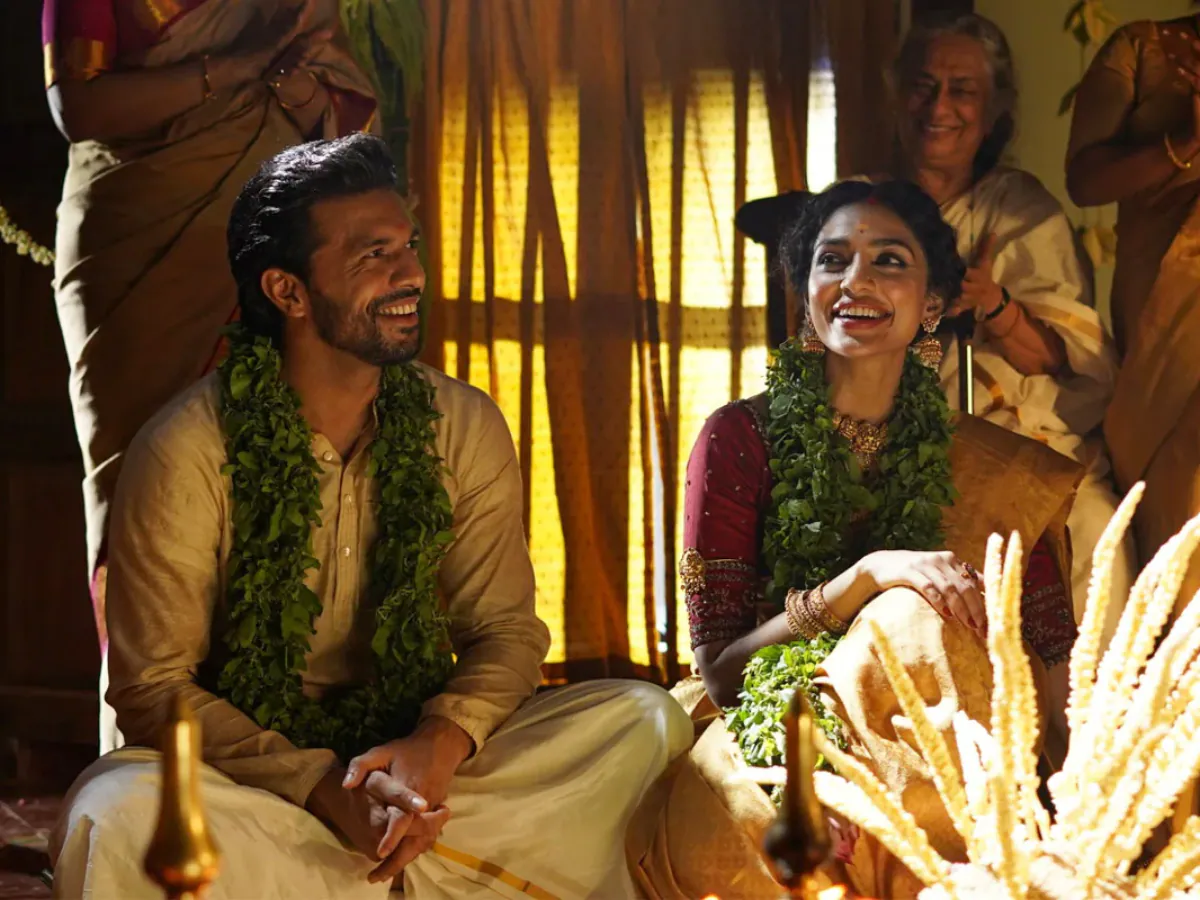
There is a line in the film that says, I might be single, but I have sufficiently mingled, which tells the audience of her sexually liberated nature despite belonging to a small village in Kerala. Hema Chechi enthralls Sitara, values her opinion over the opinions of others, and truly looks up to her. The trajectory of Hema Chechi’s life and decisions are reflected in Sitara’s life decisions. However, Sitara’s heart and perspective shatter when she comes to terms with the fact that despite being an admirable woman, her aunt is ultimately a fallible woman who has made and continues to make questionable decisions. Hema Chechi is a human at the end of the day despite being an overly progressive woman in her own right.
The female narrative is given due importance in this delightful film, leading one to wonder about the relationships in one’s own life. The characters of interest are Sitara’s mother, ammachi (grandmother in Malayalam), and her best friend, Anjali. The female characters are shown to be interlinked in their struggles as women and through their dedication to Sitara and the sacrifices they make for her well-being and happiness. Only four male characters are given the spotlight: Arjun (Sitara’s lover), his father, Sitara’s father, and her male best friend from childhood. Arjun’s father has been portrayed as an insensitive, chauvinistic individual who neither fully respects his wife nor his son.
As a typical Indian father of a son, he had extreme opinions of his son’s career inclinations as well as one’s contribution to their country. Sitara’s father is shown to have changed as an individual but has a dicey romantic past where he cheats on Sitara’s mother with her sister. But the beauty of the film lies in the lack of overdramatization of the many betrayals committed by the women against each other, and the film wraps itself together towards the end, with every family member coming together for Sitara and Arjun’s wedding.
It is considered fairly unusual for the bride to have delivered a baby before the wedding, but the female-led family doesn’t create a ruckus about it, making “Love, Sitara” an absolute delight. The film offers something to look up to for everyone due to the self-awareness it brings to the table.


